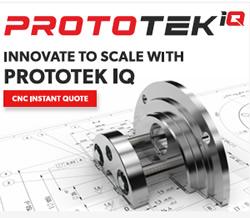3D Printing, Innovation, and Supply Chain Resiliency More Important Than Ever, Say Manufacturing Decision Makers
Palo Alto, Calif.– October 15, 2020 — Today at its global Innovation Summit, HP and members of its worldwide partner and customer community along with industry experts showcased the power of digital manufacturing to transform industries. Underpinning the event was a new HP study delivering insights on digital manufacturing technologies and trends such as industrial 3D printing. As a leader driving this digital transformation, HP’s Summit featured discussions with executives from Additive Integrity, Decathlon, Forecast3D, IDC, Nissan, SOLIZE Products, the World Economic Forum, and more.
Surveying thousands of manufacturing executives across the globe, HP’s Digital Manufacturing Trend Report finds that companies are increasingly investing in advanced 3D printing solutions that provide the agility, speed, and flexibility necessary to grow their business and become more resilient in an ever-changing environment.
One of the key insights from the global manufacturing industry is that regardless of sector or location, companies are looking to 3D printing to strengthen their supply chains, become more agile, and create more innovative product development and manufacturing strategies. This is underscored by a rising investment in 3D printing, support for 3D printing as a viable alternative to traditional manufacturing, and a greater desire for closer ecosystem collaboration to drive adoption.
Manufacturing decision makers also see opportunities for accelerated innovation, recognizing that 3D printing is uniquely suited for the mass personalization of new products, and by also reducing waste and promoting a more sustainable economy.
“The global manufacturing sector is clearly signaling a desire for greater supply chain resiliency, more manufacturing flexibility, increased speed of innovation, and stronger environmental sustainability,” said Ramon Pastor, General Manager, HP 3D Printing & Digital Manufacturing. “And they are seeing industrial 3D printing as a way to not only lower costs and go to market faster, but as a unique competitive advantage that accelerates innovation for customers.”
HP’s Digital Manufacturing Trends Report Highlights Include:
Digital Manufacturing Technologies are Spurring Economic Advancement and Agility
- 99% of global respondents believe that digital manufacturing technologies can lead to economic growth.
- 89% of respondents are looking to evolve their business models because of the current world business environment.
- Over the next 12 months, 71% plan on investing in digital manufacturing technologies, and over four-in-five respondents (85%) indicated that their company plans to increase their additive manufacturing/3D printing investment.
- Three-quarters of respondents said that additive manufacturing/3D printing helps their company be more agile, is a viable alternative to traditional manufacturing, and is a backup to traditional manufacturing.
- Over nine-in-ten respondents said they are investigating new production/supply chain models, with 59% evaluating hybrid models and 52% looking into localized production.
Accelerated Innovation Transforms Industries
- The most cited benefit by respondents using additive manufacturing/3D printing is the increased ability to innovate.
- The top new areas of innovation that companies are investigating include mass customization for direct-to-consumer products, production on demand, and digital warehousing/virtual inventory.
- In particular, 91% of respondents want to explore the innovation that mass customization provides and believe it could be applicable to their business if parts could be personalized through 3D printing/additive manufacturing.
- Medical, industrial, and automotive were called out as the industries most ripe for innovation in additive manufacturing/3D printing over the next five years.
Opening Up New Opportunities for Collaboration
- 85% of respondents indicated that collaboration across sectors to embrace new digital manufacturing technologies is important.
- 81% indicated their company has future plans to collaborate with government entities on digital manufacturing products.
- The top barrier to entry in the additive manufacturing/3D printing entry for respondents is finding a qualified workforce.
- To address this skills gap, 64% want to offer more professional training services, and 53% want companies, governments, institutions, and citizens to work together to make investments in educational and job-skilling programs.
Sustainable Production Will Continue to Be a Business Imperative
- The top ways that additive manufacturing/3D printing can reduce waste and promote a circular economy are reducing the amount of materials used and better matching supply and demand, followed by shortening and simplifying traditional supply chains, and improving service options that can prolong the life of products.
- 90% of respondents said that the recyclability of additive manufacturing/3D printed powders and parts is important.
- 88% of respondents believes that it is important that governments create a sustainable ecosystem by incentivizing investment in and development of socially and environmentally beneficial digital manufacturing technologies.
About the HP Digital Manufacturing Report
The HP Digital Manufacturing Report is a global study by HP Inc. It was conducted by SME Media/Research across three continents and nine geographic areas including Canada, China, France, Germany, Japan, Mexico, Singapore, the UK, and the U.S. Fieldwork was conducted from July 28 – August 11, 2020 across 2,175 3D printing and digital manufacturing decision makers.
About HP
HP Inc. creates technology that makes life better for everyone, everywhere. Through our product and service portfolio of personal systems, printers and 3D printing solutions, we engineer experiences that amaze. More information about HP Inc. is available at http://www.hp.com/go/3Dprinting.
Comments (0)
This post does not have any comments. Be the first to leave a comment below.
Featured Product

